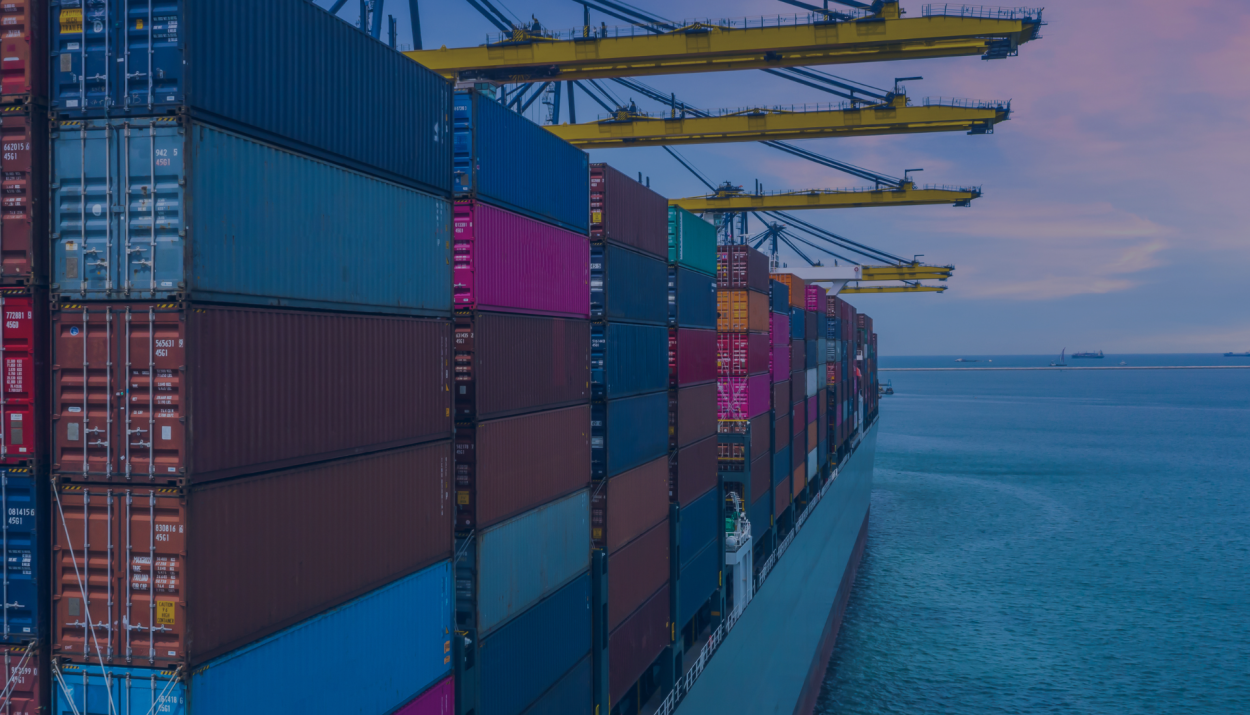How does the corporate governance framework of maritime companies in the UAE align with the sector’s strategic vision, and what role does governance play in shaping long-term objectives and sustainability goals?
The corporate governance framework of maritime companies in the UAE is closely aligned with the sector’s strategic vision, which prioritises innovation, sustainability, and global competitiveness.
Governance plays a pivotal role in shaping long-term objectives by ensuring transparency, accountability, and risk management – key factors in maintaining investor confidence and operational resilience. The UAE’s regulatory environment, including adherence to international standards such as the OECD Guidelines and local frameworks like the UAE Commercial Companies Law, reinforces best practices in board oversight, ethical conduct, and stakeholder engagement.
Moreover, governance is instrumental in advancing sustainability goals. By integrating Environmental, Social, and Governance (ESG) principles into decision making, maritime companies are better positioned to adopt green shipping initiatives, decarbonisation strategies, and circular economy models – all of which support the UAE’s Net Zero 2050 ambition and its status as a global maritime hub.
Ultimately, robust governance ensures that the sector’s growth is both economically viable and environmentally responsible, aligning with the UAE’s vision for a sustainable and diversified economy.
In the context of the maritime sector, how does the decision-making process within the boardroom contribute to the formulation and execution of strategic initiatives, and what governance practices foster effective alignment with industry trends?
In the maritime sector, boardroom decision making plays a pivotal role in shaping strategic initiatives by balancing risk management, innovation, and long-term sustainability. Given the industry’s dynamic nature – marked by regulatory shifts, technological advancements, and evolving market demands – effective governance ensures that strategic decisions are both forward-looking and grounded in operational realities.
Key contributions of boardroom decision-making include strategic clarity and risk assessment, stakeholder alignment, and technology and sustainability integration. In regard to strategic clarity and risk assessment, the board evaluates macroeconomic trends, geopolitical factors, and environmental regulations to align business objectives with industry developments.
By engaging with shareholders, customers, and regulators, the board ensures strategic initiatives reflect both commercial priorities and compliance requirements. While progressive governance frameworks prioritise sustainability and digitalisation (e.g., AI, decarbonisation) to enhance efficiency and maintain competitive advantage.
To foster effective alignment with industry trends, best practices include data-driven governance, diverse expertise, and agile policymaking. Data-driven governance means leveraging analytics to assess market disruptions and optimise fleet investments, supply chains, or green initiatives.
Incorporating directors with diverse cross-sector experience (finance, tech, sustainability) to challenge assumptions and drive innovation is key, while regular strategy reviews allow for adaptive responses to trends like alternative fuels, automation, or trade route shifts.
Ultimately, me and my fellow board members ensure that strategic execution remains resilient, compliant, and responsive to the maritime industry’s rapid evolution.
Considering the inherent risks in the maritime industry, how does corporate governance contribute to risk management strategies, and what mechanisms are in place to ensure resilience and adaptability in the face of challenges?
Corporate governance plays a pivotal role in shaping robust risk management strategies within the maritime industry, where operational, regulatory, and environmental risks are ever-present. At ES Global, strong governance frameworks ensure accountability, transparency, and strategic oversight, enabling our portfolio companies to proactively identify, assess, and mitigate risks.
Dedicated GRC committees ensure that risk management is integrated into strategic decision-making, aligning business objectives with safety, compliance, and sustainability goals. Clear governance structures enforce adherence to international regulations (e.g., IMO, SOLAS) while fostering a culture of safety and ethical operations.
The existence of various sub-committees reporting to the board, the establishment of an internal audit function which is fully independent, a Big-4 auditor providing assurance on the financial statements, manuals and SOPs for all corporate functions and the use of standards like ISO 9001 and 45001 create a robust eco system of compliance.
Scenario planning, stress testing, and continuous monitoring allow companies to adapt to disruptions, whether from geopolitical shifts, climate change, or market volatility, while transparent communication with investors, regulators, and employees builds trust and ensures collective responsiveness to emerging threats.
Ultimately, effective governance transforms risk into opportunity, ensuring long-term resilience while maintaining operational excellence in a dynamic industry. At ES Global, we embed these principles into our DNA, leveraging governance not just as a safeguard, but as a driver of innovation and sustainable growth.
How does the corporate governance structure encourage innovation within the maritime sector in the UAE, and what strategies are implemented to balance regulatory compliance with fostering a culture of technological advancements and industry-leading practices?
At ES Global, by establishing clear accountability, risk management frameworks, and strategic oversight, governance mechanisms create an environment where technological advancements and industry-leading practices can thrive.
We are constantly engaging at the board and executive management levels to not only run the operation effectively but also with efficiency. This is where technology helps.
Even though we continue to comply with the rising levels of local, federal and global rules, regulations, legislations, codes and standards, we are also committed to modernising our operations by adopting best of the breed ERP systems and other solutions which optimise our operations across our stevedoring, dry bulk, terminal operations, logistics, warehousing, transportation, shipping agency and PI correspondent sectors.
While doing so, we are cognisant as a board about our commitments towards our regulators, banks, auditors, suppliers, and customers of protecting data and information. We maintain strict compliance with data privacy laws, our contractual obligations and ensure this compliance through internal and external audits and assurance activities.
Can you elaborate on how the governance practices of maritime companies in the UAE contribute to effective stakeholder engagement, including relationships with government entities, industry partners, and the broader maritime community, influencing the sector’s strategic direction?
The UAE’s maritime governance practices ensure multi-stakeholder synergy, balancing regulatory compliance, innovation, and community interests. This approach not only enhances operational efficiency but also positions the UAE as a thought leader in shaping the future of maritime trade, sustainability, and digital transformation. The sector’s strategic direction is thus a product of collaborative governance, where companies act as key intermediaries between policymakers, industry, and society.
At ES Global, we are at the forefront of forging, developing and managing strategic relationships with regulators, port and terminal authorities and operators, vessel owners, commercial brokers, P&I Clubs and various cargo owners and shippers enabling us to be in touch with the pulse of the sector and shaping and influencing our strategic direction as an integrated supply chain management solutions provider.
How is corporate governance promoting sustainability initiatives within the UAE’s maritime sector, and what steps are being taken to ensure that governance practices align with ESG goals, influencing the sector’s strategic trajectory?
The UAE’s maritime sector is strategically positioning itself as a global leader in sustainable shipping and port operations, leveraging governance to accelerate decarbonisation via LNG, hydrogen, and wind-assisted propulsion, to enhance digital governance (AI, blockchain for emissions tracking), and to expand green finance through sukuk-linked sustainability projects.
By embedding ESG into corporate governance, the UAE maritime sector is not only meeting regulatory demands but also future proofing its competitiveness in alignment with global sustainability trends.

Dr Hassan Gardezi is a Board Member at ES Global Holding with extensive experience in the maritime industry, offering a proven track record of governance, leadership, and business growth within the UAE’s dynamic supply chain, shipping and logistics sector. Adept at steering corporate strategy, risk management, and regulatory compliance to enhance profitability and operational efficiency, Hassan has strong expertise in port operations, vessel management, and international maritime regulations, with a deep understanding of regional and global market trends. Skilled in fostering stakeholder relationships, driving sustainable business practices, and overseeing large-scale maritime projects he has demonstrated success in boardroom decision-making, financial oversight, and corporate governance, ensuring alignment with organisational objectives and shareholder interests. Recognised for analytical acumen, innovative problem-solving, and a commitment to operational excellence in a highly competitive industry, he is dedicated to advancing the UAE’s maritime sector through strategic investments, technological innovation, and world-class governance. Dr Gardezi holds advanced qualifications including a PhD in corporate governance, a Level 8 Diploma in Strategic Management & Leadership and an MBA in supply chain management & business administration, with a strong network within UAE regulatory bodies and international shipping communities. He is passionate about digital transformation, environmental sustainability, and fostering a culture of safety and compliance. He is a CPA Australia and holds prestigious Fellowships from various institutes and professional bodies including being a Fellow of the Chartered Institute of Logistics & Transportation, Fellow of the Chartered Institution of Highways & Transportation, Fellow of The Association of Governance, Risk & Compliance, Fellow of the Institute of Supply Chain Management, Fellow of the Institute of Directors, Fellow of the Chartered Management Institute, Fellow of the Institute of Consulting, Fellow of the Chartered Institute of Management Accountants and an Affiliate Fellow of the Nautical Institute.







